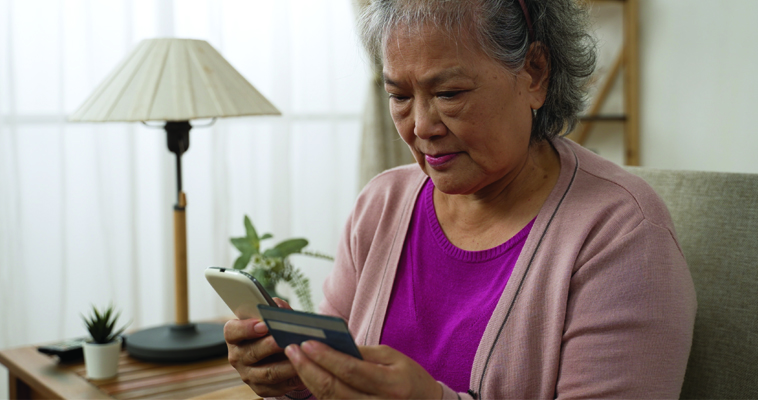
It seems like almost every day there’s a new scam circulating, and unfortunately older adults are often the main targets. In fact, according to an Elder Fraud Report by the FBI, older victims of fraud reported $1.7 billion in losses during 2021. Knowing how to identify and prevent scams can help you or your loved one avoid losses, as well as the mental and emotional distress that can result from them. Here are a few tips for protecting against fraud and scams.
Avoid wiring money
Wire transfers are one of the most common payment methods scammers use to take money from people because funds can be sent quickly and without identification. Another reason is because wiring money is like sending cash – once you do it, it’s almost impossible to get it back. If you get a call or email from someone telling you that you need to wire money to make a payment, it’s likely a scam. Real government agencies, businesses or telemarketers will not pressure you to send money through a wire transfer.
Use gift cards for gifts only
Gift cards are another way scammers often ask for payment. Once they are given the numbers on the back of the gift card, they can control the money on there. Two popular scams that usually request gift cards for payment are the grandparent scam and lottery/sweepstakes scam. The grandparent scam happens when older adults get a call from someone pretending to be their grandchild who asks for money via gift card or wire transfer to solve an immediate financial problem (e.g. overdue rent, bail money, car repairs). In a sweepstakes scam, older adults get a call saying that they’ve won a prize of some kind and must send money or gift cards to cover certain fees. No legitimate business or government agency will ask you to pay with a gift card.
Keep personal information to yourself
Sending personal information through email or text messages can open you up to phishing scams. Phishing is a type of scam that uses email, texts, and other online methods to lead people to websites and trick them into giving out private information, such as financial details or account passwords. A common example of phishing is the Medicare scam in which con artists pretend to be a Medicare representative to get older adults to share their personal information. Medicare will not call you unexpectedly to ask for any personal details, and you should never give out private information over the phone unless you are the one who made the first call.
Ignore calls from unknown numbers
If you get a call from a strange number or a number you don’t recognize, it could be a scam. This is a form of spoofing, which is when a caller fakes the information shown on your caller ID to hide their identity. If you answer, the scammers will try to ask you for valuable personal information which they can use to steal your money or commit some other form of fraud. You should never give out your personal information over the phone unless you are the one who made the call.
When it comes to avoiding scams, it’s always best to follow your suspicions. If you think you or a loved one are in danger of being scammed, reach out to someone you trust before sending any money or personal information. Talking things over with someone else can help you identify red flags and remove yourself from the scam before any damage is done. If you think you or a loved one has already been scammed or a scam attempt has been made, report it to the Federal Trade Commission (FTC) or the Elder Justice Hotline to help support fraud investigations and protect your community from scams.
